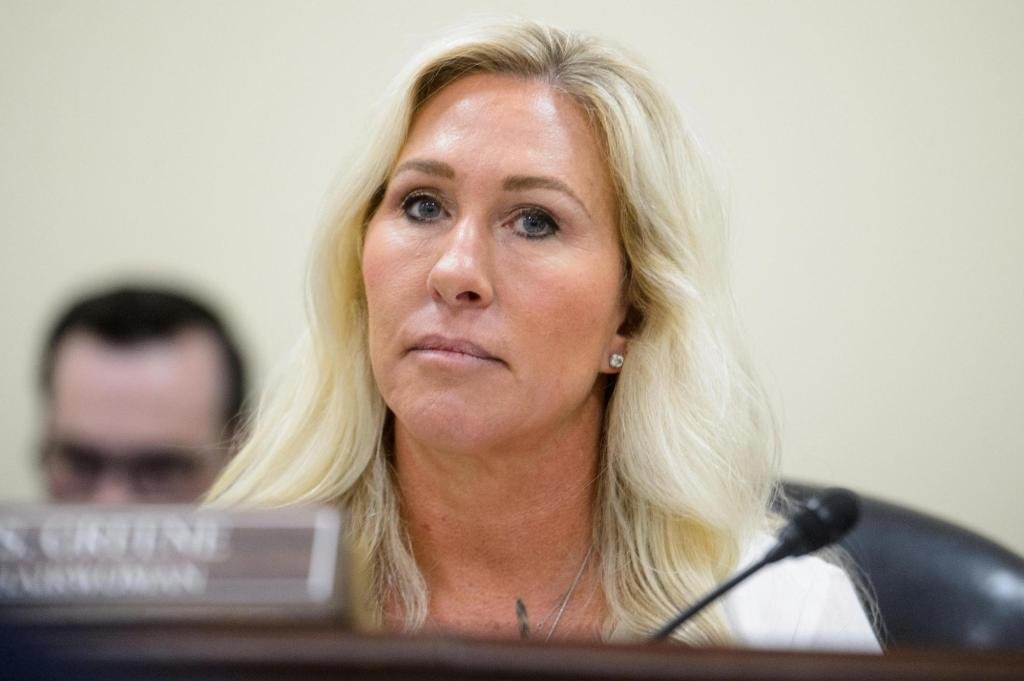Title: Maryland Man Arrested for Threatening Calls to Rep. Marjorie Taylor Greene: A Commentary on Rising Political Violence
In a concerning development underscoring the alarming trend of political violence in the United States, a Maryland resident, Seth Jason, was arrested for allegedly making a series of threatening calls to Republican Representative Marjorie Taylor Greene. This incident, which occurred between October 2023 and January 2025, involved threatening statements directed not just at Greene but also targeted her family and staff. Jason, 64, faces serious charges, including influencing a federal official by threat and interstate communications with threats to kidnap or injure. His arrest sheds light on an unsettling trend where threats against public officials have become disturbingly common.
The methods of intimidation employed by Jason are particularly troubling. According to U.S. Capitol Police, the calls originated from phone lines connected to the studios of Voice of America, where Jason had been employed. His access to such facilities raises questions about the potential misuse of resources in public communications. This incident becomes even more distressing when considering Jason’s previous role as a reserve officer for the Anne Arundel County Police Department, a position he held since 2016. The police department has since distanced itself from Jason, stating that reserve officers are unarmed and lack police authority. His connection to law enforcement highlights a complex relationship between public service and personal accountability.
The legal repercussions for Jason are severe, with a grand jury indicting him on a four-count indictment related to his threats. These charges are indicative of the broader climate of fear that has enveloped political discourse in recent years. Acting U.S. Attorney Jeanine Pirro emphasized the gravity of the situation, stating, “No one should have to live their life looking over their shoulder every day.” Her remarks resonate as a reminder of the psychological toll that such threats impose on lawmakers and their families. This case exemplifies an urgent need for public officials to feel secure in their roles.
The increasing number of threats against Congress members signifies a worrying trend in America’s political climate. Capitol Police Chief Michael Sullivan linked this incident to past violent events, including a tragic shooting in Minnesota that claimed the lives of a state House Democratic leader and her husband. Such incidents reflect a broader societal malaise characterized by polarization and the erosion of civil discourse. Sullivan’s call for accountability in threatening behaviors resonates particularly in light of recent national tragedies, stressing the necessity for rigorous enforcement of laws that protect public officials from violence.
Moreover, the public’s response to this troubling trend is vital. The attacks on political figures can create a chilling effect that discourages civic engagement and participation. Citizens may feel compelled to remain silent or disengaged, fearing retaliation for their beliefs. It is crucial for lawmakers, community leaders, and citizens alike to foster an environment that promotes civil discourse, encouraging constructive dialogue over hostility. Addressing the root causes of political violence—such as social media fuelled animosity and deeply entrenched ideological divides—should be a priority for communities and policymakers.
In conclusion, the arrest of Seth Jason serves as a sobering reminder of the escalating threats facing public officials in the United States. This incident, rooted in deeply concerning behaviors, raises questions about accountability and the societal norms regarding acceptable political discourse. As the nation grapples with rising tensions, it is essential for all stakeholders to engage in proactive measures aimed at ensuring the safety of public officials while promoting a culture of respectful dialogue. Only by standing united in our commitment to civility can we hope to mitigate such threats in the future and protect the integrity of our democratic institutions.





